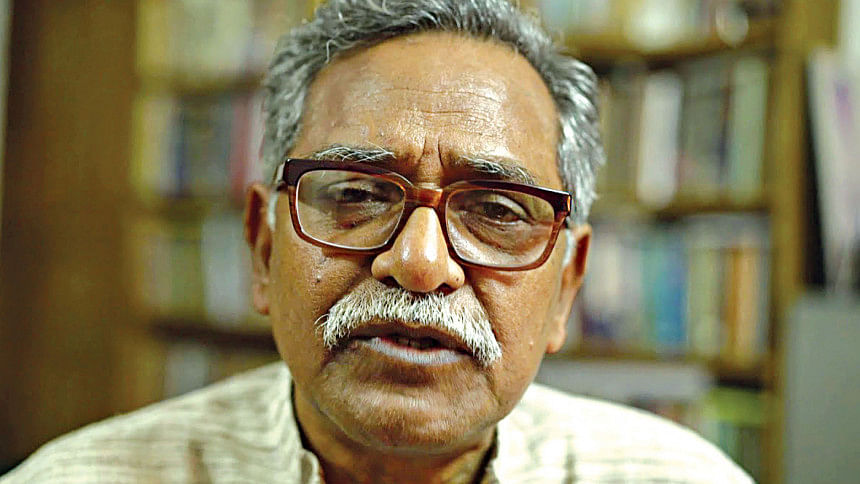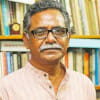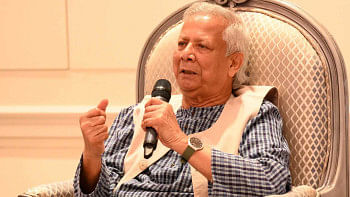Star Interview: ‘People’s pent-up anger fuelled the movement’

It's been a month since the Sheikh Hasina-led Awami League government was overthrown by a student-people uprising. Noted economist Anu Muhammad discusses the movement, the regime's fall, and the interim government's tenure, tasks and challenges in an interview with The Daily Star's Sharif M Shafique and Sadi Muhammad Alok.
DS: Why is the student-citizen movement that toppled the previous government important in history?
Anu Muhammad: The movement is significant because of its success in toppling the party that has done everything to perpetuate its power for 15 years. The failure of other political parties created helplessness among the people.
Corruption led to price rises while people's real income along with employment opportunities fell. Crores of dollars have been laundered. All these together created a suffocating situation and rage against the previous government. The movement reflected the accumulated anger of the people.
The key point is – unlike 1969 and 1990, this movement had no political or specific leadership. Above all, Hasina's actions to suppress the movement led to the government's fall.
DS: You demanded the AL government's resignation on August 2 from the "Droho Jatra" march. Then came students' "one-point movement". How did the aspirations come together?
Anu Muhammad: There is no justification for the way Abu Sayed (slain Rangpur student leader) was shot. At one stage, when public university students could not tackle the situation, their private university peers joined in. Students from colleges and even schools joined the movement.
Around 200 people lost their lives at one point. In response, the general public joined the movement. Hasina called for talks all the while trying to suppress the movement by arresting its coordinators. That's why we organised the march. People were united in the collective demand for the government's resignation.
The Anti-Discrimination Student Movement on August 3 announced the single-point demand for the government's resignation in a massive rally.
DS: How is the interim government functioning? What should be their main job?
Anu Muhammad: The government has several important jobs: firstly, publish the full list of those killed and injured; secondly, take full responsibility for the treatment of the injured and send them abroad if necessary; thirdly, take responsibility for the families of the deceased and critically injured who have lost the capability to earn.
Besides, incidents like the torture of teachers or the suffering of minorities must stop. Attacks on sculptures, statues, and memorials of liberation are not acceptable in any way. The government must clear its position on these matters. Holding free and fair polls will also be an important task of the government.
Its main challenge will be to tackle quarters with self-interests, international lobbies, and civil and military bureaucracies – the three groups who want their interests protected. But the utmost strength of the government is the people. If transparency and accountability can be created, people will support this government wholeheartedly.
DS: What should be the new political settlement?
Anu Muhammad: We're talking about a discrimination-free Bangladesh which won't return to the previous system again. For this, political parties need major reforms. They should ensure democracy within themselves. Their activities should align with the people's interests. Without these, I have doubts if the parties will bring something new.
DS: There's a talk on amending or rewriting the constitution to prevent fascism. What can the government do about it?
Anu Muhammad: The 1972 constitution had several contradictions and it needs some major changes. This government can't do it alone. It can set up a "constitution commission" with competent people and let the commission form public opinion with their recommendations. Later, it can be decided whether these changes should be made through the constituent assembly, constitutional amendments, or a referendum.
DS: The law and order situation is not stable and it is the same old picture with arrests and abrupt cases. Why are these things repeating?
Anu Muhammad: This is because of the law enforcement agencies' pattern of work. The government should deal with it first. These cases won't last. For example, Shakib Al Hasan was sued for a murder that occurred when he was playing abroad, which is not credible. If these old habits don't change, the result will be the same.
So, the government must find a solution. It's right that a month is much less time, but not less to give instructions or directions.
DS: There is this idea of banning student politics in educational institutions. What's your take on it?
Anu Muhammad: Political party-led student organisations, especially those affiliated with the government, create problems in student politics. I don't see anything wrong with student politics. This time the student protesters claimed they were not associated with politics, but still they changed the regime. What can be healthier than such a form of student politics?
DS: There's a growing anti-India sentiment among the people. What should be the government's foreign policy?
Anu Muhammad: India had more influence on Bangladesh because of the AL and Hasina. The US, China and Japan also have influence here. It cannot be said that India will not dominate again because the BNP and the Jamaat have said they want to have good relations with India. Besides, no decision has been reached so far on cancelling the agreements with India, including transit and other controversial deals. The government should disclose the agreements with all the countries, including India.
DS: How long should this government stay?
Anu Muhammad: It depends on the speed of this government's work. A lot can be done with the concurrent energy of the revolution. It is possible to establish within six months a basis for some of the urgent tasks.

 For all latest news, follow The Daily Star's Google News channel.
For all latest news, follow The Daily Star's Google News channel. 









Comments